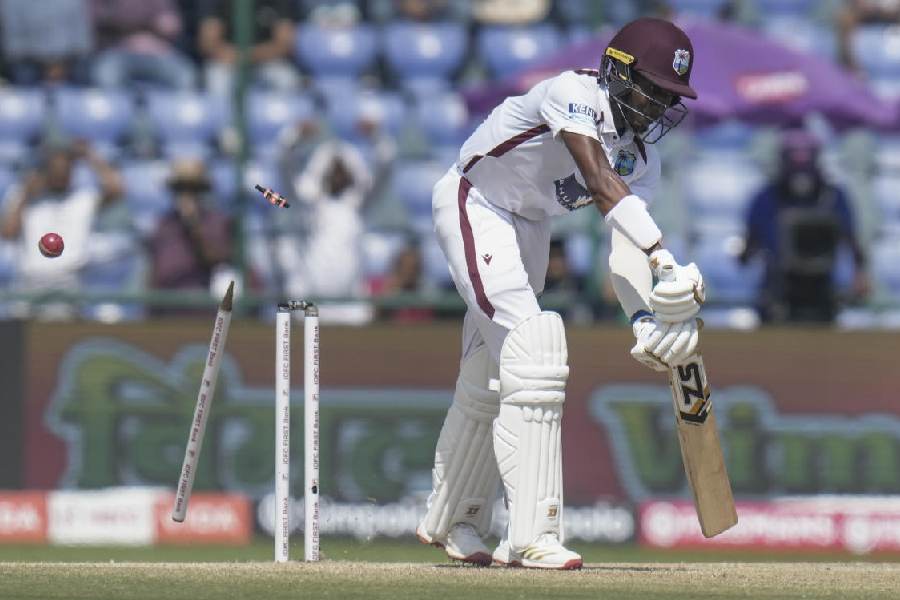The West Indies lost the recent Test series against India 0-2, but their resilience and fightback in the second Test, in New Delhi, showed that all hope was not lost with Caribbean cricket.
Captain Roston Chase feels the lessons from the India series will be a “stepping stone” for them towards better cricket. They next play a Test series in New Zealand, beginning early December. So what are the hurdles that the West Indies need to clear to play better in the red-ball format?
The biggest issue is their batting, which has led to innumerable defeats over a decade. Skipper Chase cited a lack of enough first-class experience as a problem the batters face when they enter Test cricket. “When a lot of our players come into the international level, they have played like 15-20 first-class games. While for other teams, when their guys come into international cricket, they already have like 80 or 100 first-class games,” he pointed out.
According to current head coach Daren Sammy, the problems in Windies cricket are like a “cancer rooted deep into its system.” Elaborating on the matter, former Windies selector Roland Butcher said: “Problems date way back to around 1995.
“At present, we already have two developmental teams removed from the first-class system because of financial issues — one combined campus and university side, and an academy team. The academy side is made up of U-23 cricketers who have graduated from the U-19 stage.
“Developmental sides play the role of the supply line for your international teams and thus need to be taken good care of.”
‘Bad habit’
Butcher believes the training that kids and aspirants in the Caribbean undergo from the junior level is faulty, which is why the current lot of the Windies Test batters is technically lagging.
“The coaches at the grassroots don’t teach and help players develop technique. That’s why the kids and youngsters are interested only in power-hitting
and smashing big sixes, and are unable to rotate strike with ones or twos.
“When you develop that over 10-15 years, it becomes a habit… Rather, a bad habit, and you can’t change that at the highest level. The coaches at the junior levels don’t understand that,” Butcher, also England’s first-ever Black cricketer, who played three Tests and as many ODIs, stated.
Poor pitches
The pitches in the Caribbean also give a false impression not just to the batsmen, but also to the bowlers, particularly the spinners. As noticed, the wickets there used to be slow and flat on most occasions during Tests in the early 2000s before some of the curators started preparing under-prepared tracks, especially over the last eight years or so.
A Cricket West Indies (CWI) insider revealed that in current Caribbean first-class cricket, anyone who bowls slow can get purchase off those pitches and may start thinking of himself as a quality spinner. “Then when he reaches the highest level, he gets exposed,” the CWI insider said.
Possible solution
Can they put up a better showing in the three-Test series in New Zealand?
The real work has to be done at the pathway, which is by preparing proper, sporting pitches and encouraging coaches who emphasise the development of technique over power. “That way, the players can think on their feet and analyse situations, and that has to be done at the grassroots,” Butcher advised.










